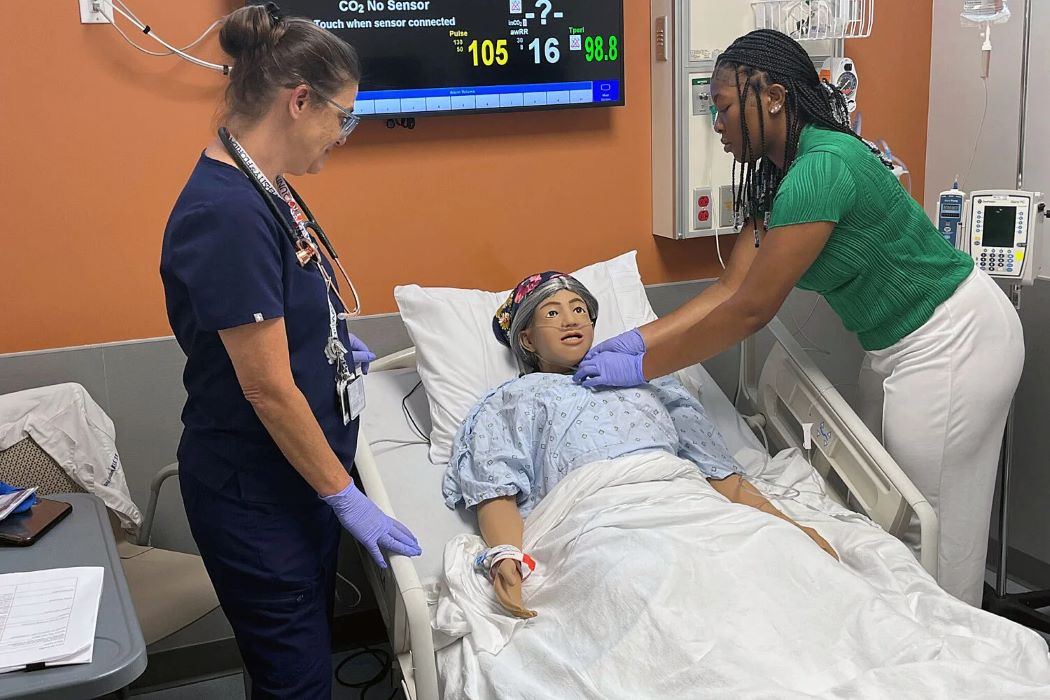UF study shows Summer Health Professions Education Program a significant student motivator

A student works on a patient mannequin as part of the 2023 UF Summer Health Professions Education Program.
Alessio Barca felt like an imposter as a freshman at the University of Florida.
After emigrating from Paraguay at 11 and being the first in his family to attend college, he was unsure how to navigate his new surroundings, let alone pursue his dream of becoming a doctor.
Then he attended the UF Summer Health Professions Education Program, or SHPEP, in 2020, and his outlook changed dramatically.
“When you start your undergraduate career, it can be a very intimidating experience because you don’t see a lot of people like you,” said Barca, who graduated from UF in 2022. “Participating in SHPEP is that catalyst to make you feel like you belong here. It definitely served as a motivator.”
Barca’s experience was borne out in a recent University of Florida study that showed SHPEP significantly helps break down perceived barriers among participating students. While the program dates back to 1989, the UF study was the first to study how participating students perceive its impact. SHPEP, funded by the Robert Wood Johnson Foundation, is geared toward first-generation students and students with backgrounds that are underrepresented in the sciences. The six-week summer enrichment program is open to freshmen and sophomores interested in health careers.
“This program has been around for quite some time. However, we did not have much evidence as to outcomes. Now we can show, in a scientific way, that this program is successful,” said Jeanne-Marie Stacciarini, UF College of Nursing associate dean for Community Engagement and Global Affairs.
The study, published today in JAMA Network Open, analyzed anonymous surveys completed by students attending SHPEP at UF from 2017 to 2021. Participants reported a significant increase in perceived motivation after attending the program. Conversely, there was a significant decrease in the perceived barriers to pursuing a health profession.
